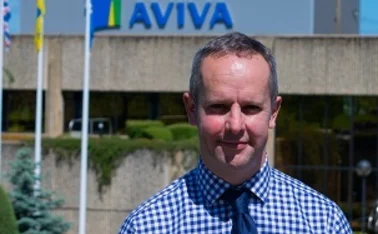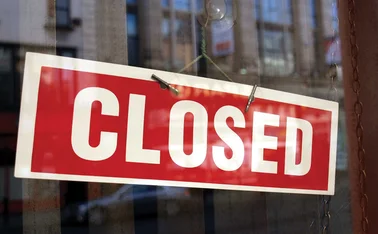Broking Success: Celebrating 50 years of independence

Having celebrated its 50th anniversary as an independent broker, R A Cowen & Partners, which is part of Cowens Group, has no plans to sell up any time soon. CEO Paul Chaplin sets out the philosophy behind the business and shares his route into broking.
R A Cowen & Partners
- GWP: £25m
- Staff: 54
- Specialisms: Complex manufacturing with construction, manufacturing, engineering, volume SME
- Locations: Mansfield, Nottinghamshire and Stamford, Lincolnshire
When was the business set up?
In 1973. Slav Kuchta and Bob Cowen worked for The Burley Group and had restrictive covenants that they couldn’t start within 14 miles of an existing Burley’s office.
At that time, Burley’s had Doncaster, Rotherham, Barnsley and Sheffield. They looked around and thought of Mansfield. They were a haulage broker.
We’ve still got haulage in our bones.
What is the benefit to the broking arm of having different divisions in the wider group?
The broking arm is the oldest and the largest. The financial services side [was launched] in 1986. The financial services side now is employee benefits, a financial advisor and a mortgage solutions company.
The others were added to provide different services for our clients and different income streams. They do attract their own customers because they’re extremely good.
There is quite a lot of referral from the commercial insurance broker to the other brands, but much less the other way.
What was your route into insurance?
I worked for the London office of Mutual of Omaha. I started off in 1979 as a trainee, certified accountant. I thought ‘I’ll do the insurance exams’. It meant that I learnt insurance from theory up rather than practice back. I’m quite unusual in that I learnt it as an academic subject.
Mutual of Omaha moved to Nottingham, and then to Bournemouth. What’s left of that company in the UK is now part of RSA.
I jumped ship, while the company was in Nottingham straight into Cowens in 1985 as a junior account executive, having had no practical experience, but a lot of theory.
I was about a year off from qualifying as Associateship of the Chartered Insurance Institute before I’d written a cover note out. They were around about £2m gross written premium.
Why did you make the switch?
I’ve always been a people person. The number one thing is wanting to help people. In a lot of sales roles, you need to sell things that people don’t necessarily need.
Most people’s issue is they haven’t got enough rather than they have too much. I have never sold somebody something they don’t need.
Paul Chaplin
In the insurance industry, you’re never in that position. I sell things that people need desperately, and most people’s issue is they haven’t got enough rather than they have too much. I have never sold somebody something they don’t need.
How did your role evolve?
I became a director in 1991. Coming out of being an accountant with an insurance qualification, I was like a duck to water with the broking account executive job, helping people with their insurance requirements, advising them, interacting with them and dealing with their claims.
What has been your management style?
I’ve got a whole business that’s built around my ethos. What motivates me is a positive outcome for the customer. If somebody gets in the way of that, I am extremely demanding. As long as I can deliver a positive outcome for the customer, I’m quite easy to get on with.
Who owns the business?
I got shares in 1991 when I was made a director. I’m a minority shareholder. The Kuchta family still owns the vast majority of the business.
How is it developing?
There’s two main parts to the commercial insurance broker. One: the complex risks that are traditionally dealt with by an executive handler, broking and claims team in Survival Capability. They are predominantly industrial type businesses.
We’ve got a huge amount of manufacturing, installation, engineering and wholesale distribution. We still do some haulage back to our roots, and we do some buses and coaches.
The vast majority of our clients employ people who get their hands dirty. We’re not big on retail, leisure and business services. The more complex it is, the more we like it.
Paul Chaplin
The vast majority of our clients employ people who get their hands dirty. We’re not big on retail, leisure and business services. That’s not really our thing. The more complex it is, the more we like it.
The other bit is Cowens XPress Cover, launched in August 2019, which is growing very quickly. It is the volume, small business operation.
[We previously had] Insure4biz, but it was becoming like a small broker of its own. We put the bigger risks back into Survival Capability, which is our main brand. Fundamentally, it is a fallout solution for a large direct writer and has about £3m GWP.
We don’t sell directly online. Every sale is advised. There is every type of small business you could ever imagine; it’s about 30% property owning. And then tradesman, retail – everything.
What is your view on the burden of regulation?
I’m not criticising the regulator because what else can it do? I’m not sure that regulation fulfills the purpose it’s supposed to. What I mean by that really is we would be doing it right if we were regulated or not.
The regulator means that we have to do some things in certain boxes that we might choose to do in a slightly different way. But, fundamentally, if you put the customer at the heart of everything that happens, then what does regulation add? It doesn’t really add because it’s just ticking boxes.
Professional excellence, customer outcomes and giving a damn is much, much more important than ticking a box in the right order. It just adds cost.
What are the targets for Xpress Cover?
We want to extend XPress’s reach significantly over the next few years. We have started a new product line, and are talking to other potential distribution partners.
We have one in play and two or three that are coming.
What are your retention rates?
It is 97% for Survival Capability and Xpress is doing 85%.
Are you still chartered crusaders?
We spend a fortune on training. We try to bring all our staff on, who are not necessarily all Chartered, but we would love to get them all there.
Some of [the training] is through the CII; some from other providers and some in-house.
I am passionate about professionalism. If you want to be treated like a professional, you’ve got to act like one and not like you’re selling secondhand cars. We try to live to the highest standards of the profession.
We try to create positive client outcomes by doing the best job we can. Even on the XPress side, we will refuse to quote if we think there’s something wrong.
What is your panel like?
We have top status – they call it different things – with a great many underwriters. We use everybody.
We have something like 90 potential underwriters, including Lloyd’s, and that’s because of the nature of trying to do things for the best client outcome.
Professionalism is part of that, but market coverage is part of that too. We don’t do anything in-house. We use managing general agents and have a wide sweep of the market.
How has insurer service responded post Covid-19 pandemic?
The feedback I hear from my staff is the service is appalling – getting hold of somebody who’s got decision-making capabilities.
If my client says jump, I’ll say how high and how quick. I expect that from underwriters, and we don’t get it from the majority.
How do you tackle underinsurance?
As part of our fervour to be professional, we have always spent a huge amount of time on the correct programme design, width of cover and sums insured.
There’s no point saving money on underinsurance or the wrong covers because it’s not going to work when it’s called upon to do so. The concept of Survival Capability is claims being paid in full and on time.
Paul Chaplin
We suggest to quite a number of clients to get professional rebuild valuations and there’s a very good take up on that. At each renewal review, we talk to them about adequacy of sums insured. It’s in our DNA really.
There’s no point saving money on underinsurance or the wrong covers because it’s not going to work when it’s called upon to do so. The whole concept of Survival Capability is claims being paid in full and on time.
Have you made any acquisitions?
No, it would be a new experience. I have got people on board who have [acquisition experience], but I haven’t. We’ve always got half an eye out, but I’m wary of acquiring issues.
You can grow quicker with acquisition. It’s taken us 50 years to get to £25m, but it’s all stuff we know inside out and back to front. In our 50 years, we’ve never had a professional indemnity claim.
I’m focused on organic growth at the moment. But if the right thing came along, I would look at that.
Is Cowens going to stay independent?
The Kuchta family are fiercely independent. I get the phone calls [from consolidators]. They get some but I get most of them. There are absolutely no plans; we will remain independent.
What do you get out of being in Una?
It’s a club. I think of Una as a collaboration of like-minded brokers who put the client first and have the highest professional standards.
We’re one of the small ones – probably the smallest now. We have some big cousins within Una, and we are all doing very different things.
The one thing that holds us together is we want to do things the right way, both professionally and for the right client outcomes. I’m very pleased that we were asked to join.
What strength does the brand have in the market?
Every time I turn my computer on it says honesty, integrity and trust. We get quite a lot of business by recommendation. If you talk to underwriting partners about us, we tell the truth. I think all our underwriting partners respect us.
Our submissions are among the best in the market. And not because they’re huge, but because they are succinct and tell the underwriter what they need to know without a load of bull.
We maximise high quality complete information without trying to blind people with a load of smoke. We tell them what it is, what it does, where it does it, why it does it – and we tell them the truth.
I think we are regarded highly by our trading partners because of that.
Only users who have a paid subscription or are part of a corporate subscription are able to print or copy content.
To access these options, along with all other subscription benefits, please contact info@insuranceage.co.uk.
You are currently unable to print this content. Please contact info@insuranceage.co.uk to find out more.
You are currently unable to copy this content. Please contact info@insuranceage.co.uk to find out more.
Copyright Infopro Digital Limited. All rights reserved.
As outlined in our terms and conditions, https://www.infopro-digital.com/terms-and-conditions/subscriptions/ (point 2.4), printing is limited to a single copy.
If you would like to purchase additional rights please email info@insuranceage.co.uk
Copyright Infopro Digital Limited. All rights reserved.
You may share this content using our article tools. As outlined in our terms and conditions, https://www.infopro-digital.com/terms-and-conditions/subscriptions/ (clause 2.4), an Authorised User may only make one copy of the materials for their own personal use. You must also comply with the restrictions in clause 2.5.
If you would like to purchase additional rights please email info@insuranceage.co.uk








